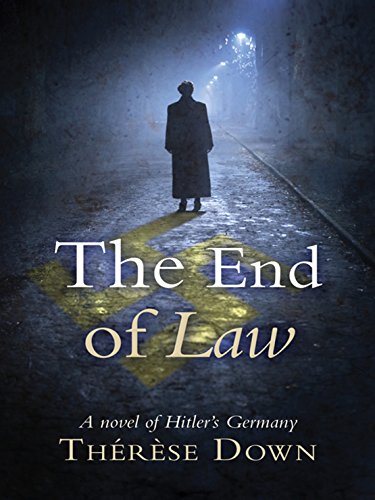The End of Law
The End of Law is a work of fiction tackling a subject that has seen very little coverage over the years: Nazi Germany, from the perspective of high-ranking Nazi officers and their families. Therese Down has researched her work carefully, and the end result is a gripping tale that sheds new light on one of the darkest periods in history.
The End of Law begins with quotations from the White Rose activists, German Christians who saw it as their duty to stand up to Hitler and the Nazis as a principle of faith, but this introduction is misleading. The characters in the book are not activists. They witness some of the most barbaric atrocities of the time, and one character, Karl Muller, based on a real-life SS officer, does wrestle with his Christian faith. However, the main characters, Muller and Hedda Gunther, the wife of an SS officer, are primarily concerned with protecting their own families. Karl’s wife is a depressive, and Hedda’s daughter has suffered head injuries in an air strike, putting them both at risk of becoming targets of the Nazi’s euthanasia policy.
At times, the writing of The End of Law is clunky and repetitive, particularly where Down is drawing on facts. However, this is that rare book where the story and the events that inspired it are sufficiently enthralling to allow any faults to be overlooked by the reader. It is also not for the faint-hearted: Down does not shy away from describing the horrendous treatment of Jews, homosexuals and others by the Nazis. I would recommend The End of Law to anyone seeking to understand how ordinary people can become complicit in the worst possible events.










